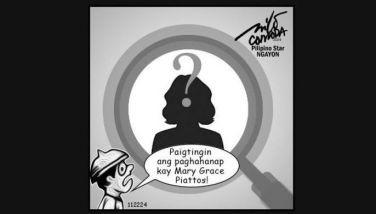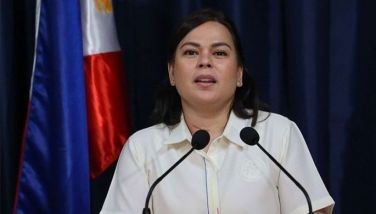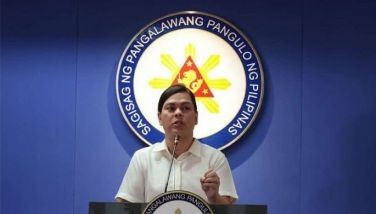DFA’s helping hand
The
“We make sure that our athletes get the best service, because they bring pride to the country,” said Assistant Secretary Domingo Lucenario Jr. of the DFA’s Office of Consular Affairs. “We’re proud to be of service to them at times like these.”
We usually hear about the DFA in action when overseas Filipino workers are abused by their employers, are victims of crimes, or are accused of crimes against nationals of other countries. But that isn’t the only time they work to help Filipino citizens wherever they may be. On top of that, at least 3,000 Filipinos apply for passports every day.
There are also cases wherein countries like
The DFA also has proposal on the table with the PSC. Lucenario explains how the department can use its massive reach to boost Philippine sports greatly. With its contacts all over the world, it actually has the best network for identifying talents overseas.
“We have proposed using our office to seek out talented Filipino youngsters overseas,” said Lucenario, a lawyer by profession who has been posted overseas several times. “We are in regular contact with Filipino citizens who are either working or have migrated overseas, and these potential athletes are well within our reach.”
When he was posted in
“Kids as young as four or five years old are studied, and those who can become athletes in particular sports are selected and trained,” said the amiable assistant secretary, who is a big basketball fan. “On the other hand, they also analyze the child’s build, and tell them frankly if they are not built for a certain sport. They tell you honestly that, if you don’t have the right body type, no matter how you try, you won’t be a world champion for that sport.”
Last week, it was reported that this year’s Olympic delegation would cost the national coffers upwards of P50 million, most of it incurred during travel and training overseas. Since the PSC has already started investing in more foreign training and exposure to get better performances out of our athletes, Lucenario reveals that the DFA has offered a helping hand in providing a support system for them.
“We have offered to find foster homes for Filipino athletes training abroad,” Lucenario adds. “Our athletes get lonely. On the other hand, there are many Filipino families who would be more than willing to take in our national athletes, house and feed them. This would be a great savings on cost, and all the athlete will have to be concerned with is transportation going to and from training.”
This suddenly brought to mind
This writer also noticed the same thing in a visit to the Olympic preparation of out taekwondo jins Tshomlee Go and Toni Rivero. There aren’t that many Filipinos in that part of
“We would want to be of more service to our athletes in that kind of a situation,” Lucenario says. “We can easily link them up with Filipinos near them, and even check on them from time to time.”
Perhaps this is something the PSC should seriously look at for coming international competitions.
- Latest
- Trending

































